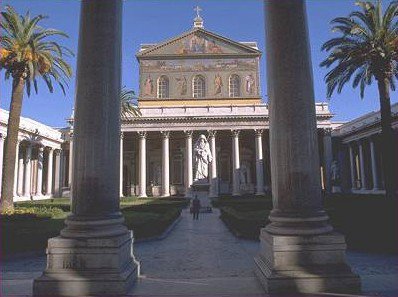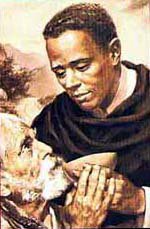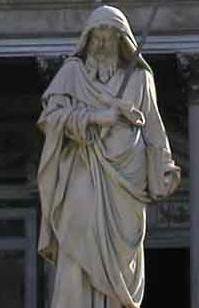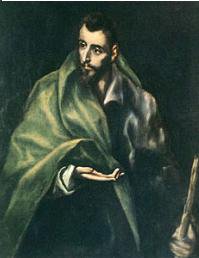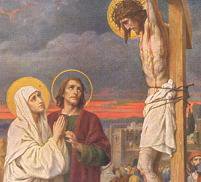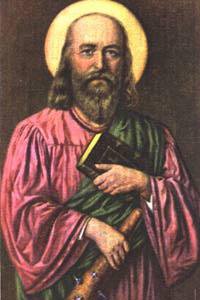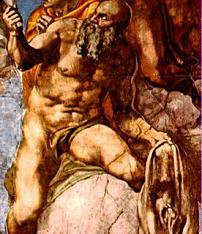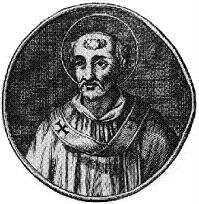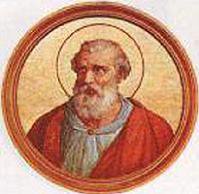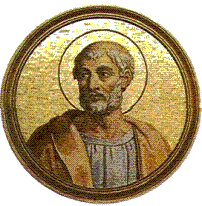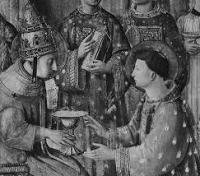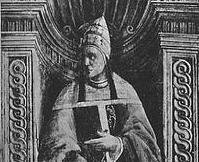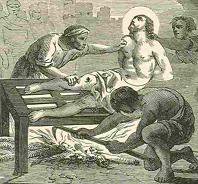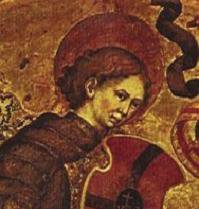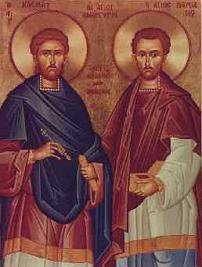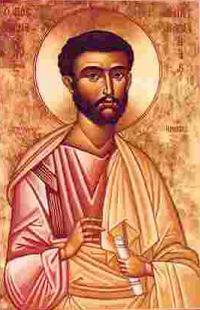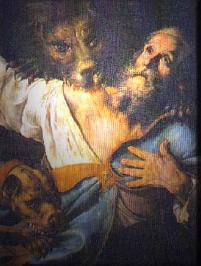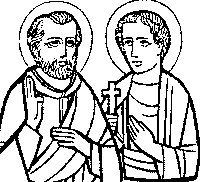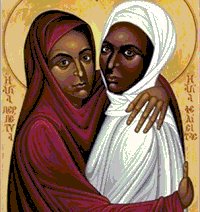Irreligious people sometimes call people who take their faith seriously “religious fanatics,” mindlessly lump them all together with suicide bombers, and falsely blame religion for causing more deaths than any other manmade cause throughout history.
Irreligious people have avoidance issues with the facts: the substantial differences between serious adherents and fanatics of a particular viewpoint (religious and irreligious), the abundance of suicide-murderers from various social and other contexts (not just theistic), and that history’s greatest murderers by far – whose death counts run well into the millions – were irreligious men: Hitler, Stalin, Pol Pot,
et al.
Today’s first
reading, however, (
1 Maccabees 2:15-19) may seem to be a problem for our
apologia, for in this passage a hero of our Judeo-Christian faith slays a fellow Jew for religious reasons. This is the beginning of an exceptionally violent campaign that soon sweeps the nation: inflicting death on many more of his fellow Jews and forcing young men and boys to undergo very painful procedures.
The end result of this bloody campaign was the first Hanukah.
But while these events had a strong religious element, the bottom line was really just power and control: religion was just a tool cynically wielded by the Hellenistic empire to consolidate its control over the diverse people under its rule.
Jews who remained faithful were executed. The people and their faith were going to be exterminated.
It was truly a matter of survival and self defense
in extremis.
But what does this all mean to us?
First, that sinful humanity is violent (with or without religion). True religion mitigates this bloodthirstiness, but even true religion can be perverted into a weapon.
Second, that the world can be a dangerous place for people who take their faith seriously.
Third, that we should do everything we can to avoid the state of affairs in today’s first reading: so that none of us should ever have to defend ourselves and our faith with extreme measures.
People who take their Christian faith seriously have too often been complacent in this modern age of religious liberty. Irreligious people try to chase people of faith out of the public square. Expressions of faith are prosecuted: from the display of a crèche to the teaching of the Bible itself.
Inexorably, some fear, people of faith are being pushed into the corners of society. When that is done, what would follow then is too terrible to contemplate.
We can avoid this state of affairs, with God’s help: by being attentive and thinking ahead, by asserting ourselves peacefully and reasonably, by avoiding internecine squabbles, and by holding firm to the faith and the love God has given us.
(from a previous post)
 A Penitent Blogger
A Penitent Blogger





 Four great Fathers of the Church – Saint Ambrose, Saint Augustine, Saint Athanasius, and Saint John Chrysostom – each extend a single finger to hold a majestic chair aloft; on the back of the chair is an image of Christ entrusting the keys of the Kingdom of Heaven to St. Peter; inside the chair are the venerated remnants of an ancient chair said to have been used by Saint Peter himself; atop the chair two cherubs hold a papal tiara; and above it all is the glory of the Holy Spirit.
Four great Fathers of the Church – Saint Ambrose, Saint Augustine, Saint Athanasius, and Saint John Chrysostom – each extend a single finger to hold a majestic chair aloft; on the back of the chair is an image of Christ entrusting the keys of the Kingdom of Heaven to St. Peter; inside the chair are the venerated remnants of an ancient chair said to have been used by Saint Peter himself; atop the chair two cherubs hold a papal tiara; and above it all is the glory of the Holy Spirit.